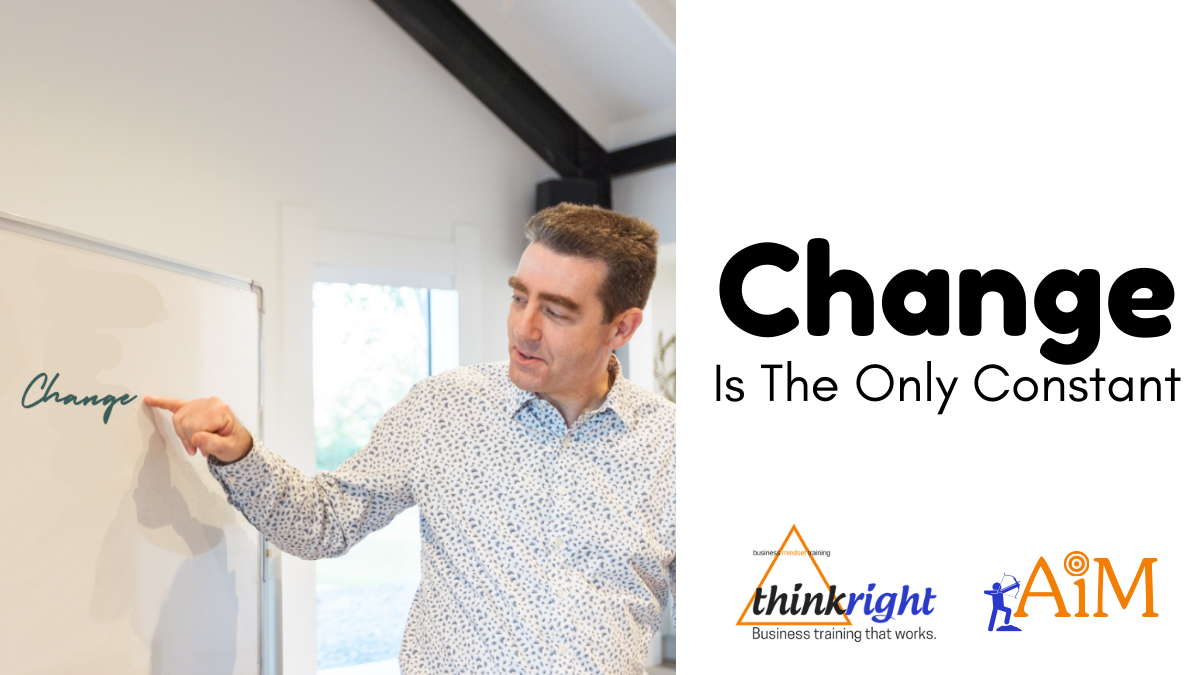Change Is The Only Constant
Change is the only constant. Humans need some change and uncertainty, or life would become boring. That said, most people like a lot more certainty in their lives. It gives a sense of safety and security. People often resist change as it takes them out of their comfort zone. Your comfort zone is like a safety bubble. You feel competent, capable, and secure within it. The challenge is that your safety zone often encapsulates your identity. It is easy to see and describe yourself in terms of what you can and can’t do. You can walk and run, but you might not believe you could run a marathon. You likely talk and engage with people daily, but you might be terrified at the thought of addressing 500 people. You can read and write, but you might not believe you could write a book.
We all have a ‘comfort zone.’ The reason it is so titled is that we feel comfortable in the space our zone represents. If we want to develop personally, we need to step out into spaces and activities that feel uncomfortable and, sometimes, even unsafe. If a friend came and asked you to speak at a charity event with an audience of over 500 people, what would be your response?
In my early 20s, I would have immediately declined. I fit into the greater percentage of people who scored public speaking as scarier than death! As my career progressed, it became obvious public speaking was an increasingly necessary skill. I reached a crossroads where I needed to face my fear or stay stuck, which was an even scarier thought. I don’t like to be afraid of anything, so I joined Toastmasters. I found I was relatively comfortable speaking in front of our small club. Over time, my confidence grew. I later discovered that confronting a fear and actively participating in it is called ‘exposure therapy’ and works incredibly well to help overcome phobias. In time, I discovered I enjoy speaking in public.
Going back to the hypothetical invitation to speak, imagine you work for a charity group. A friend asks you to have a mostly informal chat with a small group of 10-20 sponsors and explain what the charity does and why you choose to give your time to the charity. You likely would feel that it is not really your thing, but you could do it.
Let’s say that goes well, and you do a couple more. Then, one sponsor asks if you would come and give the same talk to their team of 50-70 at work. Having done the talk a couple of times, you might find the prospect of a larger audience a stretch again but would likely agree to that. The talk goes well, and you are asked to share it with a couple more workplaces of similar size. Then, the chairman of the board asks you to share the talk at the annual conference with about 500 people. Imagine you agree, albeit reluctantly. The talk goes well, and you are relieved and pleased. What you would find is that your comfort zone would expand. Not just in public speaking, but in your self-image. You would reason with yourself, ‘If I can do that, then I could do other stretch challenges.’
Look back over your life, and you will see that a lot of what you do every day used to be scary. Many of the managers I work with experience this through their growth, from running morning huddles with the team to doing one-on-one feedback sessions and presenting papers to their company board.
As you dip out of your comfort zone and into your stretch zones, you find that your comfort zone naturally grows. Your brain’s number one job is to keep you alive. Working with this knowledge allows you to get comfortable being uncomfortable. ‘Comfortable being uncomfortable’ might sound like an oxymoron, but it is necessary to continue growing.
Your survival instincts like to keep you in as familiar a pattern as possible. It uses less brain power, and historically, it is safer. For example, finding food in areas known not to have dangerous animals. The familiar is comfortable, like your favourite old sweater. While you might cognitively accept that ‘change is a constant,’ it does not mean you adapt to it easily. Humans suffer loss aversion combined with a healthy dose of caution about the unknown, so you likely avoid situations requiring change or adapt slower than is good for you.
Some changes have rhythms, like the seasons. These are familiar to you, so are easier to comprehend and adjust to. Some change is desirable; it is what keeps life interesting. Intentionally stretching outside the comforting and safe is what you need to work on if you want to grow. Where do you need to stretch yourself today?


